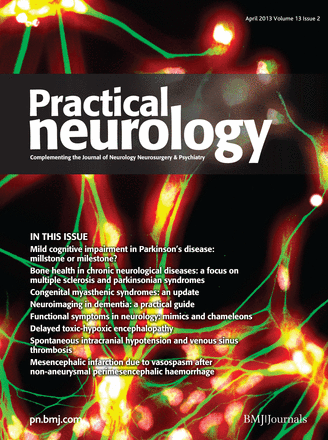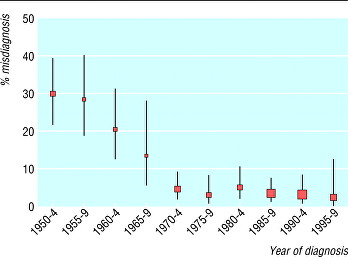Пациенты с функциональными симптомами часто обеспокоены, что их диагноз может быть ошибочным. Это происходит, главным образом, потому что ни “томограмма” ни анализы крови не могут помочь в диагностике.
Неврология включает в себя множество заболеваний. Наиболее частые из них следующие:
С другой стороны, имеется ограниченное количетсов неврологических симптомов. Наиболее распространённые из них следующие:
В действительности, поскольку имеется ограниченное количество неврологических симптомов, становится понятным, что человек, у которого появляется более одного симптома, начинает подозревать наличие какого-либо частого (или редкого) неврологического заболевания.
Этот сайт не ставит целью объяснить, как невролог диагностирует все эти болезни. Но эта страница подчеркивает, что неврологи очень хорошо знакомы с состояниями, которые могут наблюдаться у вас, ваших родственников или друзей, а также с симтомами, которые вы имеете.
Вы могли удивиться, увидев функциональные расстройства на одной из первых позиций в списке, потому что многие люди не слышали о них. Однако в реальности около 15% всех пациентов, впервые проходивших лечение в неврологических клиниках Великобритании, имели симптомы, расцененные, как функциональные/диссоциативные. Около 5% всех новых амбулаторных пациентов имели парезы, приcтупы или онемение, также расцененные как функциональные/диссоциативные.
Если ваш невролог решил, что вы имеете функциональные или диссоциатинвые симптомы, наиболее вероятно, что для этого есть реальные основания. Должны иметься положительные признаки функциональных симптомов, а не просто отсутствие изменения на “томограмме” или в анализах крови. Вы можете увидеть положительные признаки функционального пареза, функциональных чувствительных нарушений и диссоциативных припадков, нажав на соответствующую позицию.
Подобно тому, как невролог ставит диагноз болезни Паркинсона, мигрени или эпилепсии у кровати больного с помощью детального расспроса и осмотра (без дополнительных тестов), также правильно могут быть диагностированы функциональные или диссоциативные симптомы.
Да, это происходит довольно часто. Вот видео, демонструрующее данную ситуацию
Задача врача усложняется, когда у пациента есть доказанное неврологическое заболевание (например, рассеянный склероз) и четкие признаки функциональных симптомов (например, функциональный парез). У некоторых людей наличие неврологического заболевания может спровоцировать развитие функциональных симптомов, поэтому невролог всегда должен помнить об этом. Именно поэтому часто необходимо дообследование, даже когда диагноз кажется ясным. Некоторые люди могут иметь два диагноза: однин – органического неврологического заболевания, а второй – присоединившихся функциональных симптомов. Например, около 10% людей с диссоциативными припадками также имеют эпилепсию (но 90% не имеют ее).
Однако, обнадеживают результаты исследования частоты неправильных неврологических диагнозов, согласно которым (по крайней мере, за последние 30 лет) количество врачебных ошибок не превышает 5%. График внизу показывает (на основании 27 исследований 1500 пациентов, наблюдавшихся в среднем около 5 лет), как диагностика становится более точной на протяжении этих лет.

Тем не менее, обнадеживают данные исследования о частоте неправильных диагнозов, которые ставят неврологи. За последние 30 лет доля пациентов, у которых позже диагноз оказывается неверным, составляет около 5%. Приведенный ниже график основан на 27 исследованиях и наблюдениях почти 1500 пациентов в среднем в течение 5 лет. Это показывает, как диагноз стал более точным с годами.

Данное исследование суммирует результаты всех предыдущих исследований, анализирующих, как часто врачи ставили диагноз функциональных неврологических симптомов неправильно. В итоге частота ошибочных диагнозов составила всего 5% с 1970 года, что соответствует частоте ошибочных диагнозов при других неврологических заболеваниях (Stone et al BMJ. 2005; 331: 989;doi:10.1136/bmj.38628.466898.55)
Комментарий к графику: по горизонтали показаны годы, по вертикали – процент ошибочных диагнозов функциональных расстройств.
Частота ошибочных диагнозов (5%) может показаться большой. Вас, наверное, удивит, однако, это число меньше, чем при диагностике эпилепсии, рассеянного склероза, и оно сопоставимо с частотой ошибочных диагнозов при таком редком и тяжелом заболевании как боковой амиотрофический склероз.
Приведенные выше данные свидетельствуют, что ошибочные диагнозы органического заболевания при наличии функционального/диссоциативного расстройств также распространены, как и диагностика фугкциональных при наличии органического.
Любой врач (обычно невролог), ставящий диагноз функционального расстройства, должен хорошо знать неврологические заболевания, проявляющиеся такими же симптомами, и положительные признаки функциональных симптомов. И даже в тех случаях, когда врач может ошибиться в диагнозе функционального расстройства, это будет не чаще, чем при других неврологических заболеваниях.


We will be re-directing you to the University of Edinburgh’s donate page, which enable donations in a secure manner on our behalf. We use donations for keeping the site running and further FND research.
